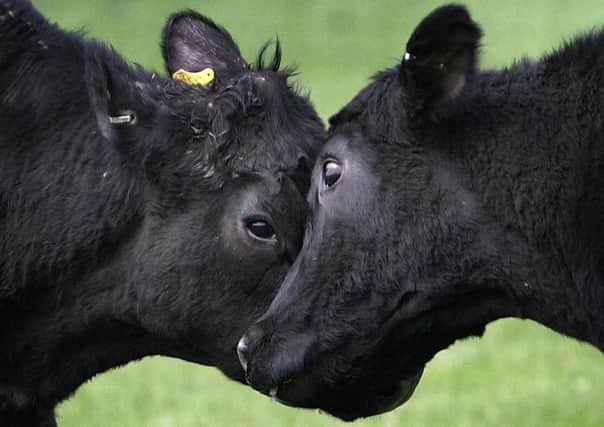Meat wholesalers call for '˜negligible' BSE risk grade


This has seen added costs for meat processors as well as still having a stigma attached to having previously had a problem with mad cow disease.
However, this week, the Scottish Association of Meat Wholesalers (SAMW) has asked the cabinet secretary for rural economy and connectivity, Fergus Ewing, for a meeting to examine the case for Scotland to be upgraded to the highest possible BSE status.
Advertisement
Hide AdAdvertisement
Hide AdThis would put Scotland ahead of both England and Wales, who are not due for upgrading until 2020 at the earliest because of a confirmed case being found south of the Border in an animal born in 2009.
The Scottish meat processors, along with their Northern Irish counterparts, have asked that the “all-clear” seven-year advantage should be recognised by the prompt granting of “negligible risk” BSE status for the country’s livestock, rather than having to wait until England and Wales qualify for their upgrade in four years.
Alan Jess, SAMW president, said: “We believe the case for Scotland moving to ‘negligible risk’ is extremely strong, based on our BSE record, and hope the Cabinet Secretary will support us in raising our status to the highest possible level in the shortest time possible.”
To back up its case, SAMW listed the benefits such a change would bring to the Scottish industry. It included reputational gain from having a disease-free image and the removal of obstacles when negotiating access to new markets.
SAMW also believed there would be easier access to markets where some trade already exists and it would give them a trading advantage over competitors from “controlled risk” countries as well as the chance to trade in the most lucrative markets,
There would also be financial benefits from the removal of unnecessary disposal costs.
Jess also said a change to the top status for Scotland’s meat and livestock industry would see it being perceived abroad as having a clean, healthy image and producing wholesome, high-quality produce.
“This image has been enhanced in recent years through our achieving of TB free status and BVD free status, resulting in significant benefits in accessing new export markets and capturing new customers in existing markets.
“While it’s difficult to place a precise financial value on the benefit to Scotland’s image of gaining the desired ‘negligible risk’ BSE status, we believe it would be substantial.”
